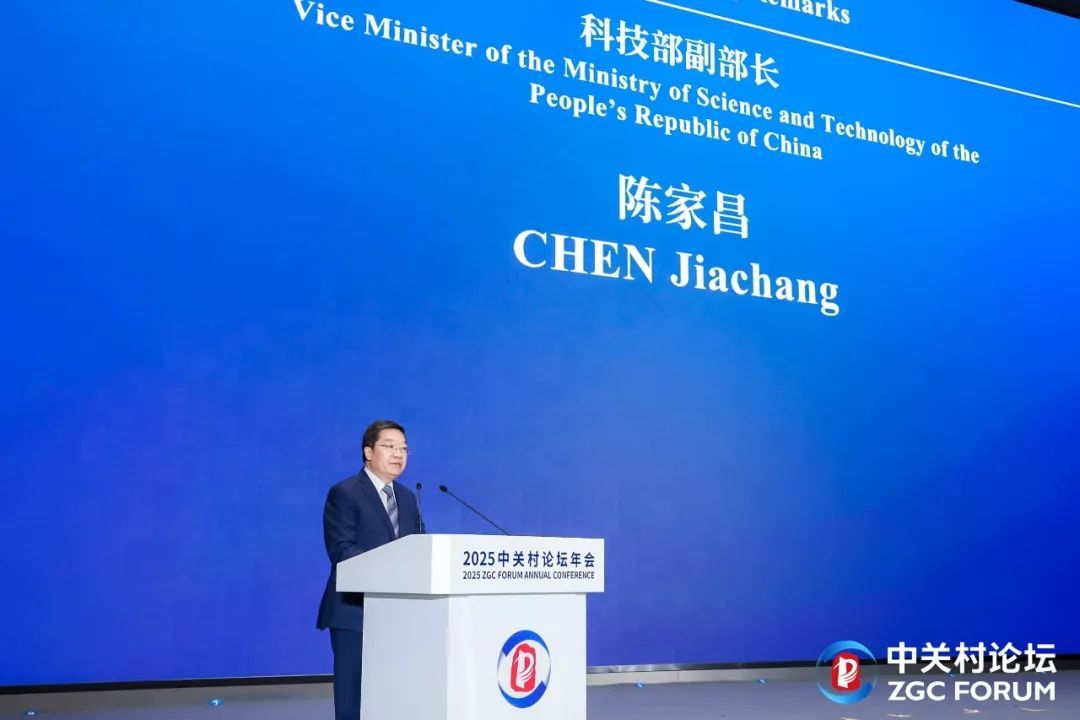On March 31, the International Forum on Science and Diplomacy, 2025 Zhongguancun Forum was successfully held in Beijing. The event was co-hosted by the Ministry of Science and Technology and the People's Government of Beijing Municipality, and jointly organized by the China Association for International Science and Technology Cooperation, the Beijing Municipal Science and Technology Commission, and the Administrative Committee of Zhongguancun Science Park. Chen Jiachang, Vice Minister of Science and Technology; Dai Gang, Director-General of the Department of International Cooperation of the Ministry of Science and Technology; Jin Wei, Standing Member of the Beijing Municipal Committee and Vice Mayor; as well as representatives from relevant government departments, universities, research institutions, and enterprises, attended the forum alongside diplomats and young scientists from over 20 countries.
With the theme of "Promoting International Science and Technology Cooperation and Building an Open and Innovative Ecosystem," the forum brought together world-leading scientific experts, scholars, and industry leaders. Through keynote speeches and roundtable discussions, participants explored new models of international science and technology cooperation and sustainable development paths in the context of open science. Representatives from the China-LAC Technology Transfer Center (CLTTC) were invited to attend the forum. The event offered valuable insights for deepening China-Latin America innovation cooperation. Moving forward, the CLTTC will actively apply the outcomes of the forum to promote the practice of open science in the field of China-LAC technology transfer, continuously improve international cooperation mechanisms, and contribute to the development of a China-LAC scientific community.
In his opening remarks, Chen Jiachang emphasized that strengthening openness and cooperation in science and technology is both a common aspiration and an inevitable path for global S&T development. He offered four suggestions: first, to deepen open cooperation and build closer partnerships in science and technology; second, to promote open science and jointly address global scientific and technological challenges; third, to enhance people-to-people exchanges and create bridges for collaboration among young scholars worldwide; and fourth, to improve the open innovation environment and foster a fair, inclusive, and vibrant innovation ecosystem.

During the forum, speakers from various countries shared their experiences in international cooperation and underscored the importance of open scientific collaboration. Guo Huadong, an academician of the Chinese Academy of Sciences, stated that "openness" is a globally recognized principle in science diplomacy. He noted that China attaches great importance to cooperation with international organizations and institutions and hopes to work with global partners to advance digital technologies for scientific development. Benoît Dubuis, President of the Swiss Academy of Engineering Sciences, pointed out that the challenges people face today require joint efforts. Diana Boraschi, former Director of the Institute of Protein Biochemistry at Italy’s National Research Council, highlighted that scientific sharing is a key safeguard for achieving the UN Sustainable Development Goals.
Two key topics were discussed during the roundtable sessions: "Strengthening Global Science and Technology Cooperation for Sustainable Development" and "Promoting Open Science and Building a Global Science Community." Experts and scholars from China, the United States, the United Kingdom, Egypt, Iran, Tanzania, and other countries unanimously agreed that open science plays a vital role in global S&T cooperation and that by leveraging the diverse strengths of each nation, countries can jointly advance sustainable development worldwide.
As a key hub for innovation cooperation between China and Latin America, the CLTTC will continue to promote the application of open science concepts in areas such as technology transfer and resource sharing. The center aims to deepen collaborative innovation among academia, industry, and research sectors in strategic fields such as clean energy and digital technology. By establishing standardized technical matchmaking mechanisms and a professional talent development system, the CLTTC will work to transform the forum's consensus into concrete actions that support sustainable development in Latin America, offering a practical model for building a China-LAC scientific community.

